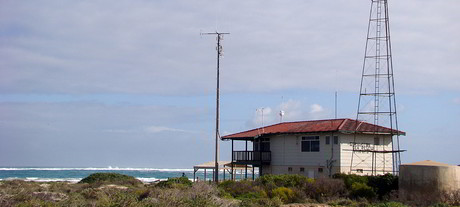Console control for coastal radio

Gone are the days of ‘octopus operators’, as Geraldton’s Volunteer Marine Rescue station upgrades its radio control.
For recreational boaties, getting out on the water is largely a relaxing endeavour. But in the event of trouble, whether that be engine failure or something more serious, having reliable communications with rescue authorities ashore is one of the most important things.
A number of different organisations in Australia provide emergency communications for mariners. In the Western Australian city of Geraldton, it is the Geraldton Volunteer Marine Rescue (VMR).
The Geraldton VMR has recently transformed its operations, going from an outdated set-up where operators almost needed octopus-like tentacles to operate eight separate radios to a much-improved solution in the form of a dispatch console.
Ian Beard, communications and media officer for Geraldton VMR, said that simplifying the dispatch system has revolutionised his facility.
“Before changing systems we had eight radios, each with their own microphones,” he said. “That included four monitoring marine VHF channels, two monitoring the 27 MHz marine channels, one monitoring HF SSB and one monitoring the UHF CB emergency channel. It was very complicated to operate.”
Amazingly, all eight consoles were usually monitored by a single operator, said Beard.
“One of the problems we had was keeping track of which radio was going off — you had to be paying absolute attention,” he added.
“Often on the marine VHF we’d have a call coming in on channel 16 for someone to log on, while somebody else would be wanting to call for information on another frequency, and it could be very difficult.”

To have the ability to conduct rescue or recovery missions effectively, Beard and his team realised that something had to be done to make their communications more efficient. And that led them to a RediTALK RoIP system from Omnitronics.
“Things are way better with RediTALK, it combines everything into one console,” said Beard. “When we moved to the RoIP system we bought three laptops and put the software on them, and now we can monitor from basically anywhere there is a decent internet connection.”
The challenge involved with keeping track of which radio was broadcasting on which frequency is now a thing of the past, thanks to the simple, all-in-one solution.
“RediTALK has a follow active function, so if somebody calls in then a button on the console is activated and locks on — so you know at a glance which frequency you’re operating on,” said Beard. “Plus it’s already in the mode for transmission, which makes it a lot easier.”
Being a volunteer organisation, Geraldton VMR has a reasonably regular stream of new operators circulating through, all of whom need to be brought up to speed on the communications system. Whereas training previously was a time-consuming and sometimes overwhelming chore, with RediTALK it’s easy to get new personnel ready to go.
“The complexity of the old system was a huge inhibiting factor, and we had a few eager volunteers who couldn’t deal with it,” said Beard. “RediTALK has made that training process a lot easier. We have 15–20 trained operators at the moment, and the flexibility of the system means out-of-hours monitoring can be handled much easier, shared around rather than it all landing in the lap of one person.”
Beard hopes similar stations on his network will soon jump on board.
“The Marine Rescue Association of WA is trying to get RediTALK installed across the whole network, and the more people using it the better,” he said.
Geraldton VMR is just one of many marine organisations using Omnitronics’ dispatch solutions. Others include Surf Life Saving Australia and New Zealand, ports in Sydney, Port Hedland and Antwerp, and other sea rescue organisations throughout Australia, New Zealand and Canada.
Why P25 technology remains a good fit for public safety communications
Digital LMR technology ensures police officers, firefighters and emergency management teams can...
From past to present: leveraging satellite data for better disaster resilience
Whether monitoring flood-prone regions or assessing wildfire-prone landscapes, historical...
Lancashire Police adds in-car video to full vehicle fleet
Motorola Solutions' M500 in-car video solution observes a vehicle's environment from...





